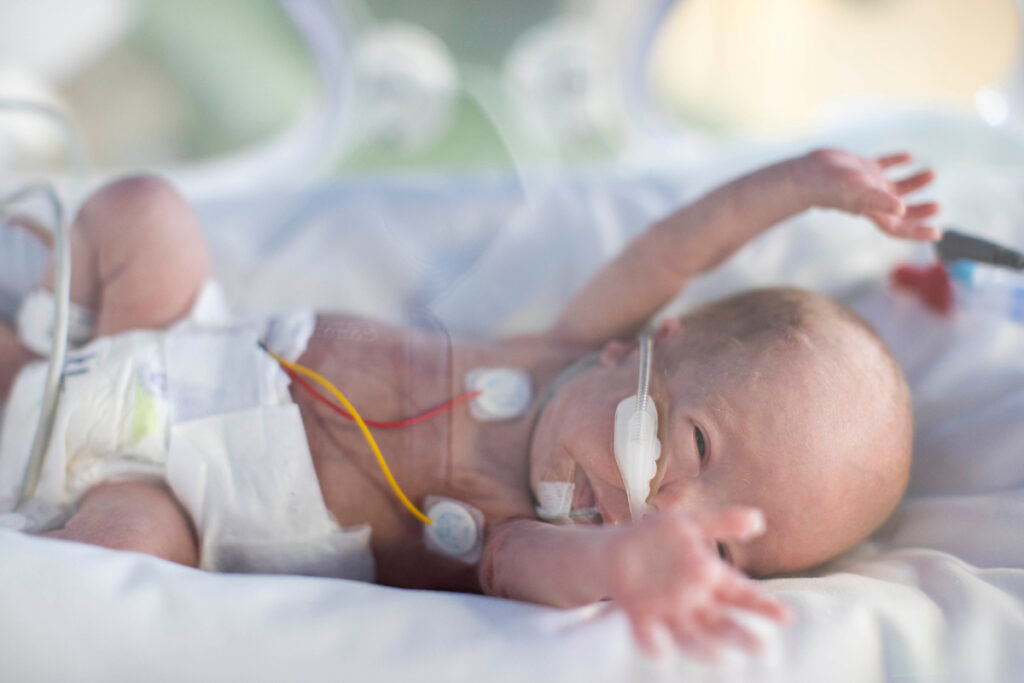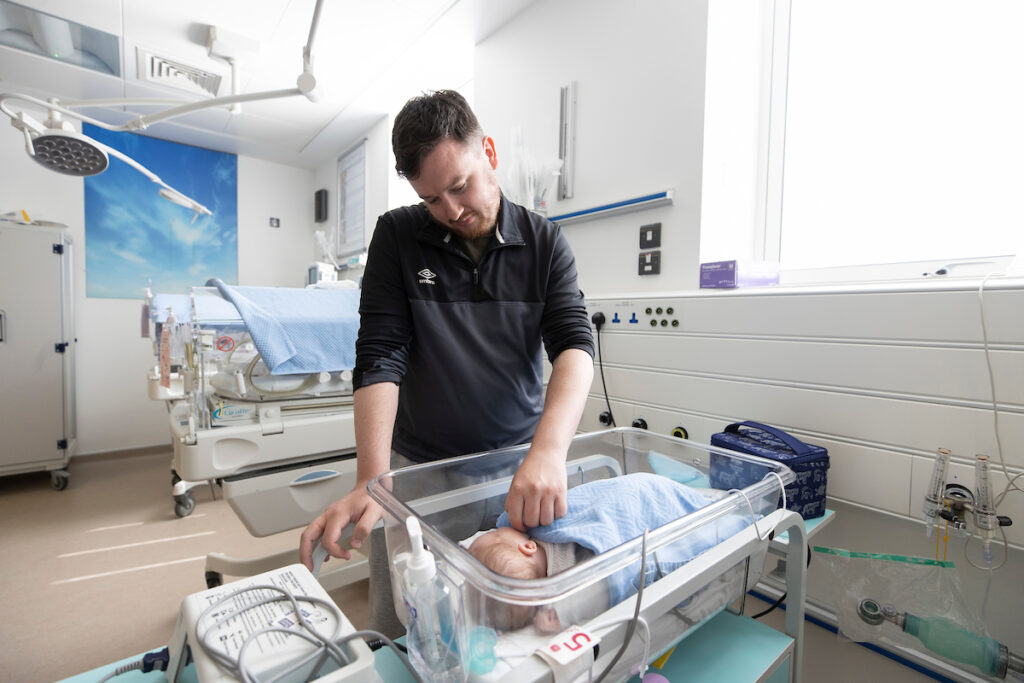Going Home - At Home
Play and rest
Preterm babies need more periods of rest and time for recovery than healthy term babies do. They are very good at communicating these needs through non-verbal gestures and behaviour. You will already be familiar with these gestures from the times you were observing your baby while in the neonatal unit. See Understanding how your baby communicates with you.
Recognising your baby’s social interactive needs at home
You con understand your baby by watching them and interpreting their behaviour. They will tell you when it is okay to play and when it is too stressful for them. They will signal when they want to feed, socialise and sleep. See Understanding how your baby communicates with you.
When I am hungry
- Watch for me making mouthing movements.
When I want to play
- My eyes open widely.
- I show eye-contact.
- I increase my facial and limb movements.
- I may respond by blinking or by moving my legs or arms.
- I may mimic gestures that you make, e.g. stick out my tongue, purse my lips (pout) or open my mouth.
- My breathing is regular.
- My limbs are relaxed.
When I am tired and need a rest – ‘Time-Out’ signals
- I may shut my eyes or look away.
- I may grimace.
- My arms and legs may stretch out and stiffen.
- My breathing may become uneven.
- I may throw my head back and extend my body.
- I may yawn, grunt or hiccup.
When you observe these ‘Time-Out’ behaviours I’m asking you to
- Stop playing with me.
- Give me a break.
- Hold me quietly or let me lie down to rest.

‘Time-Out’ signal: baby yawning, arm extended, hand to head to self-control
When you observe these signals for ‘Time-Out’, it is time to take a break from the play session and let your baby rest. By paying attention to your baby’s signals and by responding appropriately you are giving back some of your baby’s sense of control over their environment.
It is important that you do not tire or over-stimulate your baby. Your baby needs to save their energy for things that will help their development and learning, e.g. by following the movement of a bright light or dangling toy, opening their hands from time-to-time, smiling in response to an adult or other stimulus, making non-crying noises, e.g. cooing or gurgling, and being able to ignore certain sounds that would have previously caused them to startle.



